
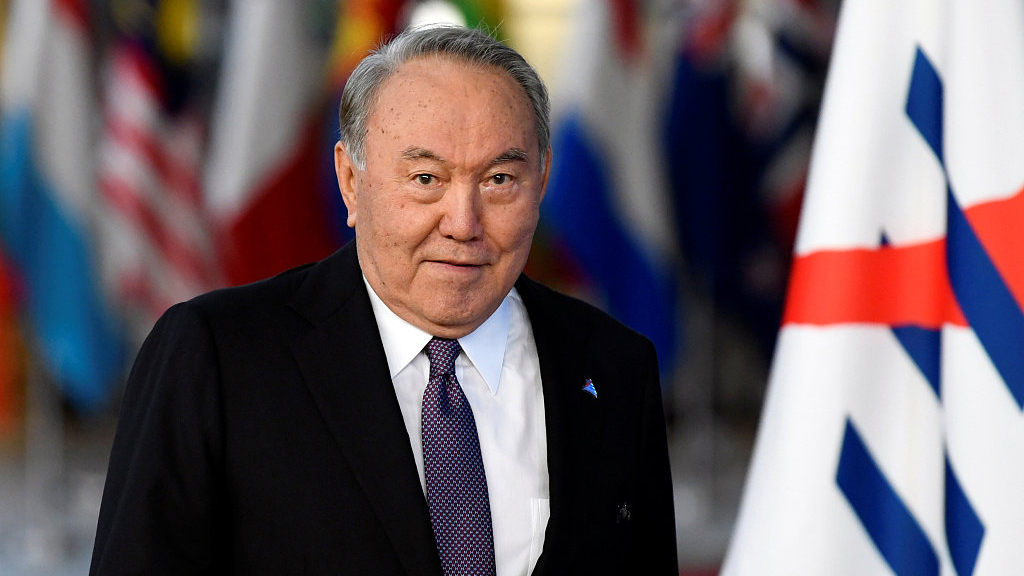
Roll back to 1990, and a 48-year-old former steelworker takes charge of Kazakhstan – then part of the Soviet Union – and a year later is elected the first president of the newly independent country.
Nearly three decades on, Nursultan Nazarbayev has stepped aside on his own terms.
Few politicians leave power at a time of their choosing, and he is only the second president of a former Soviet state – after former Russian president Boris Yeltsin – to step down voluntarily.
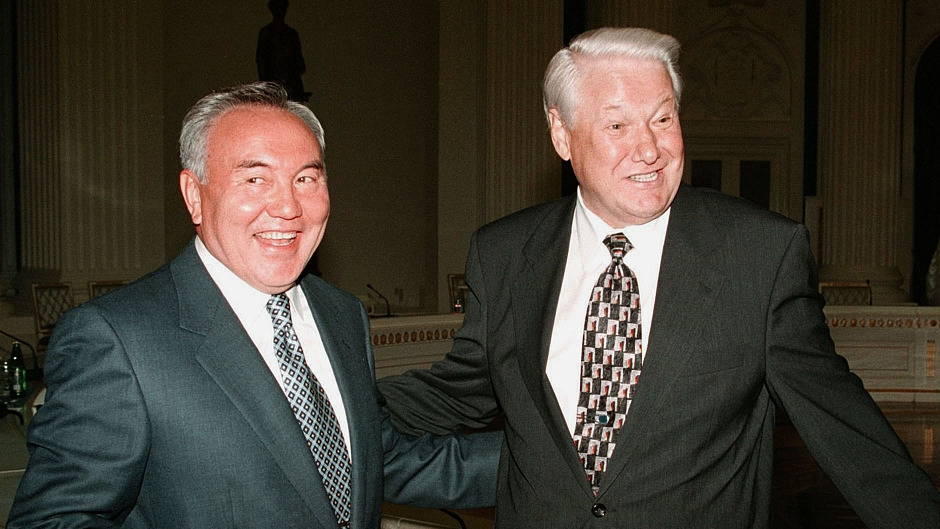
Then Russian President Boris Yeltsin (R) and his Kazakh counterpart Nursultan Nazarbayev answer questions after talks in Moscow, July 6, 1998. /VCG Photo
The charismatic 78-year-old guided Kazakhstan through Soviet rule to independence, and has since presided over stability in a natural-resource-rich country that is Central Asia's largest economy.
But in March, he made the dramatic decision to resign as president – signing the resignation decree live on television, and kicking into action a succession plan which saw Senate chairman Kassym-Zhomart Tokayev replace him as a caretaker and then win nearly 71 percent of the vote in snap elections.
The timing of the resignation of Nazarbayev – who was given the lifelong title "Leader of the Nation" by MPs in 2010 – was a surprise, but the act wasn't totally unexpected for a leader who has established close relations with China and Russia while also building business ties with the West.
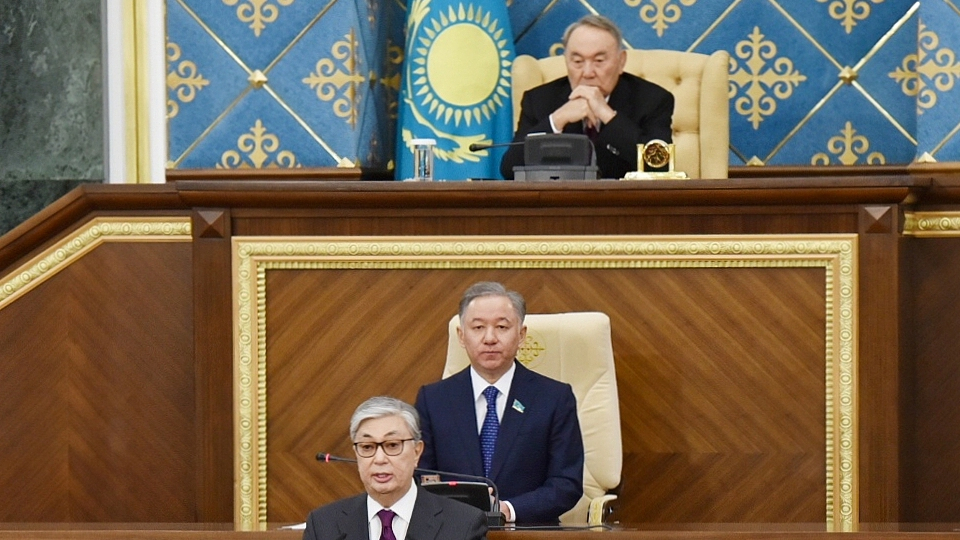
Former Kazakh President Nursultan (top) looks on as Kassym-Jomart Tokayev (bottom) is inaugurated as his interim successor, 20 March, 2019. /VCG Photo
Several constitutional changes in recent years pointed to preparations for a change of president, and Nazarbayev has regularly cited the model of Lee Kuan Yew, the first prime minister of Singapore, who stood down after 31 years in power. As far back as 2015, he had hinted that he may follow the former Singaporean leader's "founding father" example.
"I have run Kazakhstan for many years already, I stood at the cradle of its independence, so maybe it’s time to 'change stage', as they say in a theater," Reuters quoted him as saying in March 2015.
"The founding father of Singapore, Lee Kuan Yew… once stepped down, and I asked him why," Nazarbayev went on. "And the answer was: 'I had ruled for 31 years, and when I watched myself on television, I did not like myself.' And I said that television distorts things and that well, maybe it’s not worth watching TV, but I have a similar plan."
The Kazakh economy has prospered over three decades since independence, up 4.1 percent in 2018, and Nazarbayev has taken steps to improve regional dialogue as well as national development. He initiated the Conference on Interaction and Confidence Building Measures in Asia (CICA), the fifth summit of which is held on June 15 in Tajikistan, back in 1992.
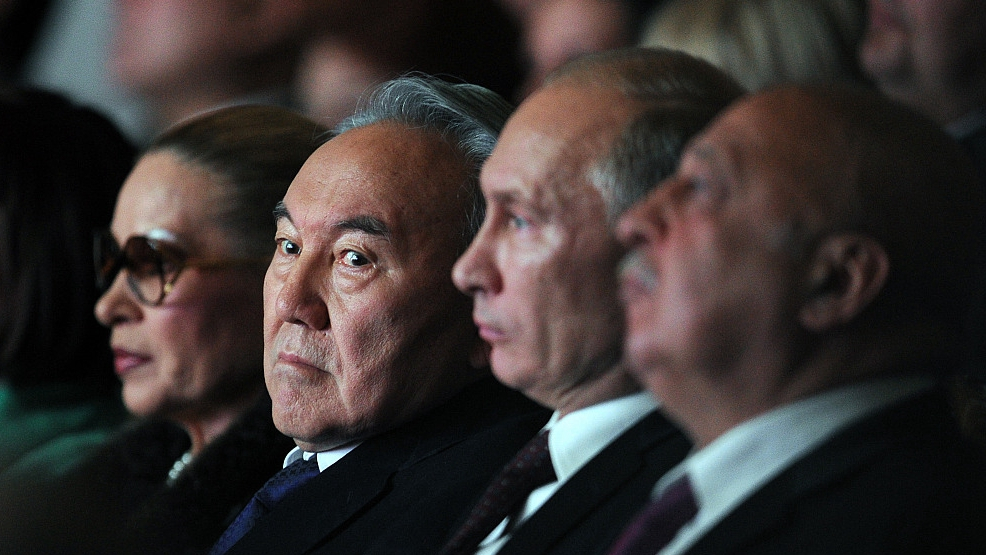
Then Kazakh President Nirsultan Nazarbayev with Russia's President Vladimir Putin at the Bolshoi Theatre marking the 20th anniversary of the establishment of diplomatic relations between Russia and Kazakhstan, October 9, 2012. /VCG Photo
But the departure of Nazarbayev is a big moment for Kazakhstan. So what next?
Tokayev, a 66-year-old former foreign minister and prime minister, was inaugurated as the country's second elected president on June 12 with a promise to make "different opinions, united nation" the mantra of his administration.
He has pledged to include youngsters with concerns over socioeconomic issues and the political system in a “special committee” to promote dialogue.
"I am a reformer, so there will be no status quo," the new president said in an interview with The Wall Street Journal on Thursday. "Without political transformation, Kazakhstan will not be a success story. Without political reforms there will be no progress in economic reforms."
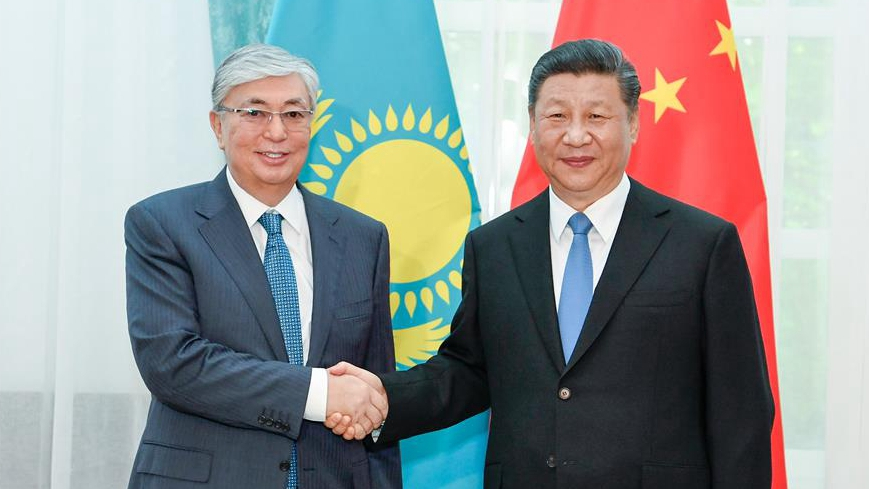
Chinese President Xi Jinping shakes hands with his Kazakh counterpart Kassym-Jomart Tokayev in Bishkek, Kyrgyzstan, June 13, 2019. /VCG Photo
And next for Nazarbayev? In his resignation speech, he said, "I will be staying with you." The only leader half the 18-million strong Kazakh population has known is not disappearing into retirement.
"As a recognized leader of Kazakhstan, he'll be helping me," Tokayev told the Wall Street Journal. "I take advice from him."
Nazarbayev will retain the title of Leader of the Nation, chair Kazakhstan's Security Council, head the Assembly of the People as "First President" and remain the leader of the Nur Otan party. His eldest daughter, Dariga Nazarbayeva, is now chairman of the Senate – the second in line for the presidency.
And there's little chance of his name being forgotten. Tokayev has already ordered the Kazakh capital Astana be renamed in the former president's honor – now to be known as Nur-sultan.

Copyright © 2018 CGTN. Beijing ICP prepared NO.16065310-3
Copyright © 2018 CGTN. Beijing ICP prepared NO.16065310-3